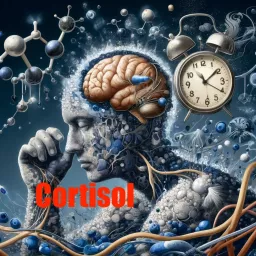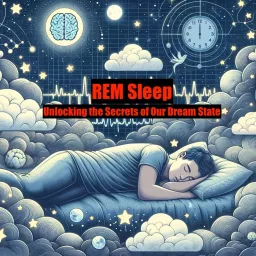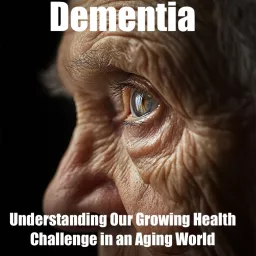Cortisol

Understanding Cortisol: The Double-Edged Sword of Stress Hormones
In the intricate symphony of hormones that orchestrate the body's functions, cortisol stands out as a potent and multifaceted player. This steroid hormone, produced by the adrenal glands, is often referred to as the "stress hormone" due to its pivotal role in the body's response to physical and psychological challenges. While cortisol is essential for survival and adaptation, an imbalance in its levels can have far-reaching consequences on various aspects of human health.
The Biology of Cortisol
Cortisol is primarily produced by the adrenal glands, located just above the kidneys. Its secretion is regulated by a complex interplay between the hypothalamus, pituitary gland, and the adrenal glands themselves, a system known as the hypothalamic-pituitary-adrenal (HPA) axis.
When the body perceives a stress stimulus, whether physical or psychological, the hypothalamus releases corticotropin-releasing hormone (CRH), which signals the pituitary gland to secrete adrenocorticotropic hormone (ACTH). ACTH, in turn, stimulates the adrenal glands to produce and release cortisol into the bloodstream.
Cortisol's primary functions involve regulating various metabolic processes, immune responses, and the body's stress response. It plays a crucial role in:
1. **Glucose Metabolism**: Cortisol increases blood sugar levels by stimulating gluconeogenesis (the production of glucose from non-carbohydrate sources) and promoting the breakdown of proteins and lipids. This process provides the body with readily available energy to cope with stressful situations.
2. **Anti-inflammatory Effects**: In the short term, cortisol exhibits potent anti-inflammatory properties, helping to suppress the immune system's inflammatory response and prevent tissue damage during acute stress or injury.
3. **Blood Pressure Regulation**: Cortisol helps maintain blood pressure by promoting sodium and water retention, as well as constricting blood vessels.
4. **Brain Function**: Cortisol influences brain function, affecting mood, motivation, and memory formation. It can also modulate the body's response to fear and anxiety.
The Double-Edged Sword of Cortisol
While cortisol is essential for survival and adaptation, its effects can be double-edged. Acute, short-term increases in cortisol levels can be beneficial, providing the body with the necessary energy and resources to cope with stressful situations. However, chronic or prolonged exposure to elevated cortisol levels can have detrimental consequences on various aspects of human health.
Metabolic Effects
Prolonged high levels of cortisol can contribute to the development of metabolic disorders, such as insulin resistance, obesity, and an increased risk of type 2 diabetes. Cortisol promotes the breakdown of proteins and lipids, leading to the accumulation of abdominal fat and the redistribution of body fat, a condition known as "cortisol obesity."
Immune System Suppression
While cortisol's anti-inflammatory effects can be beneficial in the short term, chronic elevated levels can suppress the immune system, increasing susceptibility to infections and autoimmune diseases. This can impair the body's ability to fight off pathogens and potentially exacerbate existing inflammatory conditions.
Cardiovascular Health
High cortisol levels have been linked to an increased risk of cardiovascular diseases, including hypertension, atherosclerosis, and heart attacks. Cortisol can contribute to the development of these conditions by promoting the accumulation of abdominal fat, increasing oxidative stress, and disrupting normal lipid metabolism.
Mental Health and Cognitive Function
Cortisol plays a crucial role in regulating mood, motivation, and cognitive function. Chronic exposure to high cortisol levels has been associated with an increased risk of mood disorders, such as depression and anxiety, as well as impaired memory and cognitive performance. Additionally, prolonged stress and elevated cortisol levels can contribute to the development of conditions like post-traumatic stress disorder (PTSD) and burnout.
Bone Health
Excessive cortisol levels can have a detrimental effect on bone health by inhibiting the absorption of calcium and promoting the breakdown of bone tissue. This can lead to an increased risk of osteoporosis, fractures, and other bone-related disorders, particularly in older adults.
Sleep Disturbances
High cortisol levels can disrupt the body's natural sleep-wake cycle, leading to insomnia, poor sleep quality, and fatigue. Conversely, chronic sleep deprivation can also contribute to elevated cortisol levels, creating a vicious cycle that further exacerbates the problem.
Managing Cortisol Levels for Optimal Health
Given the profound impact of cortisol on various aspects of human health, maintaining a balanced level of this hormone is crucial for overall well-being. While it is impossible to eliminate stress from our lives entirely, adopting effective stress management strategies can help regulate cortisol levels and mitigate its potential negative effects.
Lifestyle Modifications
Incorporating lifestyle changes can play a significant role in managing cortisol levels:
1. **Regular Exercise**: Engaging in regular physical activity, such as aerobic exercise, yoga, or strength training, can help reduce cortisol levels and improve overall stress management.
2. **Mindfulness and Relaxation Techniques**: Practices like meditation, deep breathing exercises, and progressive muscle relaxation can effectively reduce stress and lower cortisol levels.
3. **Adequate Sleep**: Prioritizing sleep hygiene and getting adequate, high-quality sleep can help regulate cortisol levels and support the body's natural circadian rhythms.
4. **Balanced Diet**: A diet rich in whole, nutrient-dense foods and low in processed and sugary foods can help maintain stable blood sugar levels and reduce the body's stress response.
5. **Social Support**: Building and maintaining a strong social support network can provide emotional resilience and help buffer the effects of stress on cortisol levels.
Medical Interventions
In cases where lifestyle modifications are insufficient or cortisol levels are severely imbalanced, medical interventions may be necessary:
1. **Stress Management Therapy**: Cognitive-behavioral therapy (CBT), mindfulness-based stress reduction (MBSR), and other forms of psychological counseling can help individuals develop effective coping strategies for managing stress and regulating cortisol levels.
2. **Medication**: In some cases, medications such as glucocorticoids (synthetic cortisol) or cortisol-lowering agents may be prescribed to manage conditions related to cortisol imbalances, such as Cushing's syndrome or Addison's disease.
3. **Supplements**: While research is ongoing, some dietary supplements, like ashwagandha, rhodiola, and phosphatidylserine, have shown potential in supporting healthy cortisol levels and stress responses.
It is important to note that any medical intervention should be undertaken under the guidance of a qualified healthcare professional, as cortisol imbalances can be indicative of underlying medical conditions that require proper diagnosis and treatment.
The Importance of Cortisol in Modern Society
In today's fast-paced and demanding world, stress has become an increasingly prevalent part of our daily lives. From work pressures and financial concerns to social obligations and environmental stressors, the challenges we face can trigger a constant state of heightened cortisol levels.
This chronic stress exposure can have far-reaching consequences on our physical and mental well-being, contributing to a host of health issues, including metabolic disorders, cardiovascular diseases, mental health problems, and compromised immune function.
Understanding the role of cortisol in human health is crucial for developing effective strategies to mitigate the negative impacts of stress on our bodies and minds. By recognizing the signs of cortisol imbalances and taking proactive steps to manage stress levels, individuals can improve their overall well-being and potentially prevent the development of stress-related conditions.
Moreover, raising awareness about the importance of cortisol regulation can have broader societal implications. Employers, educators, and policymakers can play a vital role in creating environments that promote work-life balance, stress management resources, and overall well-being. By prioritizing mental health and taking steps to reduce chronic stress in various settings, we can collectively work towards fostering healthier and more resilient communities.
Conclusion
Cortisol, the "stress hormone," is a double-edged sword – essential for survival and adaptation, yet capable of causing significant harm when present in excessive or prolonged levels. Its intricate involvement in metabolic processes, immune function, cardiovascular health, mental well-being, and other vital aspects of human physiology underscores the importance of maintaining a balanced cortisol level.
By embracing a holistic approach that combines lifestyle modifications, stress management techniques, and, when necessary, medical interventions, individuals can take control of their cortisol levels and mitigate the potential negative effects of chronic stress.
As our understanding of the intricate relationship between cortisol and human health continues to evolve, it becomes increasingly evident that addressing stress and cortisol imbalances is not just a personal matter but a societal imperative. By prioritizing mental health, promoting work-life balance, and fostering envir































